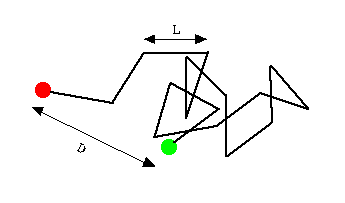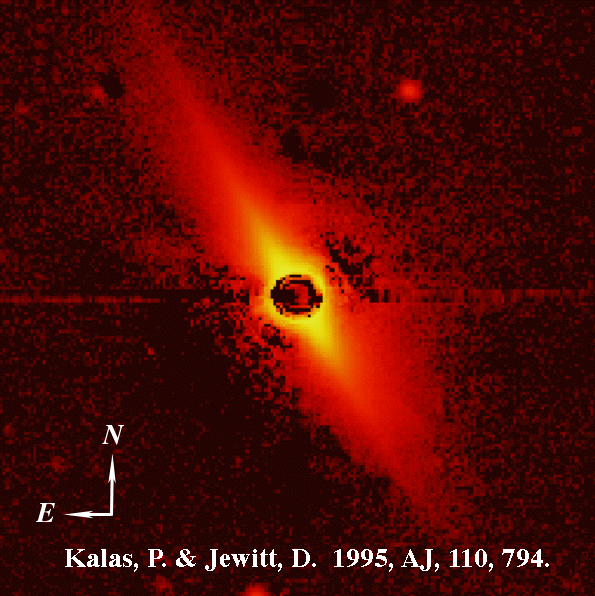Random Walk
Thought Experiment #1
Think of a person who walks always with a stride of length L. If the
person walks in a straight line and takes N steps, the total distance
travelled is just D = N*L.

Thought Experiment #2
Now think of the same person heavily under the influence of alcohol
(I could make a joke about Scotland here but I won't). The stride is
still L, but the direction is now random...sometimes forwards, sometimes
to the left, to the right, some staggering backwards too. In this
condition, the total distance travelled is  .
.
For example, if the distance to be travelled is 100 meters when the stride length is 1 meter, the person walking in a straight line needs to take N = 100/1 = 100 steps, while the drunkard must take N = 100*100/1 = 10,000 steps. Random walk is much slower than linear walking because some of the time is spent staggering backwards. Nevertheless, the person still moves away from the starting point (a pub, presumably).
As another example, to change the velocity of an Oort Cloud comet by 100 m/s given a series of random "kicks" from passing stars all of magnitude 1 m/s takes 10,000 stars.
Last updated December 1997
